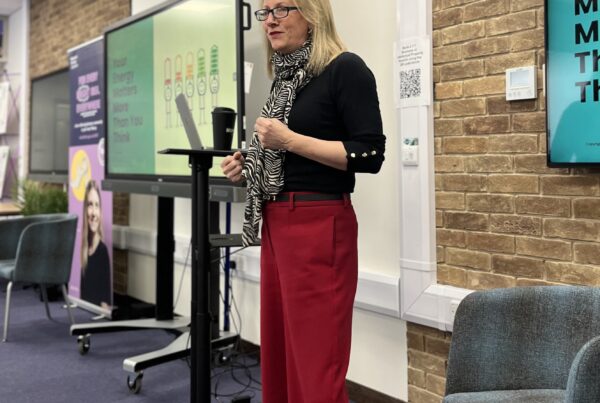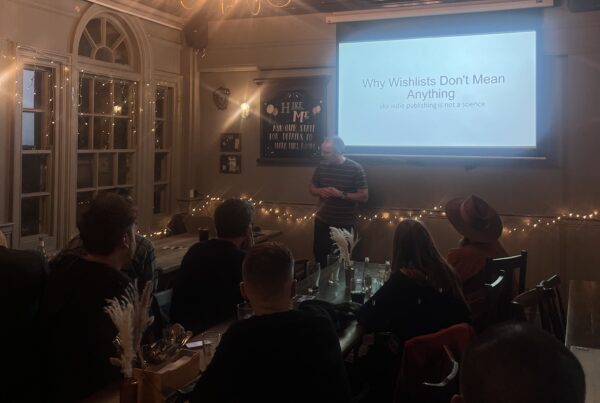The hiring landscape in 2025 is evolving rapidly, shaped by a post-pandemic market shift and accelerated by new technologies. After a couple of uncertain years, many employers are regaining confidence and resuming recruitment plans. At the same time, competition for top talent remains intense, and the rise of AI is redefining both the jobs on offer and how we fill them. This post explores key hiring trends in 2025 – from market shifts to AI’s impact – and offers tips on how businesses can adapt.
A Market in Transition: From Caution to Competition
The last few years saw companies take a cautious approach to hiring amid economic uncertainty. Now, signs point to a more optimistic outlook. Surveys show 63% of companies plan to expand their workforce in 2025, reflecting renewed confidence. Small and mid-sized businesses are particularly upbeat about growth, and there’s an expectation that demand for skilled talent will remain high in the months ahead.
Yet this optimism doesn’t erase the ongoing talent crunch. Many industries are still experiencing a tight labour market for specialised skills. In the tech sector, for example, companies met only 50% of their hiring goals in 2024 due to intense competition and a lack of qualified candidates. Similar challenges echo across sectors where certain expertise is in short supply. In other words, businesses are hiring again – but finding the right talent is as tough as ever. Candidates with in-demand skills often field multiple offers, and roles in areas like software development, data analysis, and healthcare continue to be hard to fill. The hiring market has shifted to favour those with key skills, making it critical for organisations to stand out and move fast when recruiting.
The Impact of AI on Recruitment (Beyond Just AI Roles)
Artificial intelligence is no longer just a buzzword in recruitment – it’s becoming a practical asset in hiring strategies. Companies that leverage AI in their recruitment process are seeing real benefits. According to Gartner research, organisations adopting AI in hiring achieve a 30% faster time-to-hire and a 25% reduction in recruitment costs on average. It’s no surprise that 67% of HR leaders believe AI tools are critical for improving hiring accuracy and efficiency. From automating resume screening to scheduling interviews, AI-powered tools help talent teams save time and focus on what matters most – engaging with the best candidates. In fact, by 2025, half of large companies are expected to use AI-based assessments for evaluating candidates’ soft skills and cultural fit, not just for technical screening. This trend means AI is being used to enhance decision-making in recruitment, making the process more data-driven and potentially less biased.
Importantly, AI’s influence extends beyond hiring for AI specialist roles. It’s reshaping the skill requirements of all kinds of jobs. Traditional roles are evolving: many now demand digital literacy and the ability to work alongside AI tools. Approximately 54% of team leaders plan to adjust their hiring focus due to AI and automation advancements. That means when hiring, they’re looking for candidates with skills like data analysis, machine learning familiarity, or AI fluency – even in fields like marketing, finance, or operations. In practice, a marketing manager today might need to leverage AI-driven analytics, or an HR professional might use AI platforms for talent sourcing. AI is also helping to personalise the recruitment experience; for example, intelligent chatbots can answer candidate questions 24/7, and algorithms can match applicants to roles that fit their profile. The key takeaway is that AI is transforming how we hire and whom we hire: businesses are integrating AI into recruitment workflows while also valuing new skill sets in their hires.
Adapting to the Changing Hiring Landscape
With hiring trends shifting, businesses need to adapt their talent strategies to stay competitive. Here are some ways organisations can navigate the 2025 hiring landscape:
-
Leverage AI and automation in recruitment: Embrace recruitment software and AI tools to streamline your hiring process. Automating time-consuming tasks (like CV screening or interview scheduling) can significantly cut down time-to-hire, giving your team more bandwidth to connect with candidates. Using data-driven insights (e.g. analytics on where candidates drop off or which sources provide the best hires) helps refine your approach continuously.
-
Focus on candidate experience and employer brand: In a competitive market, how you treat candidates can be a deciding factor. Ensure a smooth, responsive hiring process and communicate your company culture and values clearly. Remember that 88% of job seekers consider a company’s reputation and employer brand before even applying. A positive candidate experience – from timely updates to respectful interviews – not only improves your hiring outcomes but also boosts your brand. Candidates talk; a strong employer brand means more qualified people will want to work with you, and fewer will drop out or reject offers.
-
Offer flexibility in roles and work arrangements: The pandemic ushered in an era of flexibility that’s here to stay. Companies that provide remote or hybrid work options, or that tap into contract and freelance talent, can access a wider talent pool. In fact, many businesses (especially SMEs) are increasing their use of contractors or freelancers to meet skills gaps and fluctuating demand. Being open to flexible talent – for example, bringing in a contractor to kickstart a project while you hire a permanent employee – helps you stay agile and keep projects moving. It also appeals to candidates who prioritise work-life balance or project-based careers.
-
Invest in upskilling and internal talent development: Given the ongoing skills shortage, one adaptive strategy is to build talent from within. Encourage and support training programmes for your employees to learn emerging skills (such as data analytics or AI tool proficiency). This not only fills roles internally but also aids retention – employees are more likely to stay if they see growth opportunities. An internal mobility focus can turn your organisation into a talent incubator, reducing reliance on external hiring for every new need. Additionally, consider hiring for potential and cultural fit, not just immediate skills. A candidate with the right attitude and ability to learn can quickly pick up new competencies if you provide the resources.
-
Broaden your talent search and commit to diversity: Widen the parameters of whom and where you hire. This might mean considering candidates from different industries who have transferable skills, or reaching out to underrepresented talent pools. A diverse workforce can drive innovation and performance, and casting a wider net helps alleviate the talent crunch. Ensure your job postings focus on skills and outcomes rather than overly specific credentials that might exclude great candidates. By being inclusive and open-minded in recruitment, you not only find talent others might overlook but also strengthen your company’s culture and reputation.
-
Partner with talent experts: Adapting to fast-changing hiring trends can be challenging, and this is where outside expertise becomes valuable. Consider partnering with a specialised recruitment agency or talent solutions provider. For example, working with talent experts who understand your industry can dramatically cut down the time it takes to find qualified candidates. They bring market insight (on salary benchmarks, competitor hiring, etc.), extensive candidate networks, and refined search techniques to fill roles efficiently. If your business is struggling to hire for critical positions or simply wants to save time, leveraging a recruitment partner can deliver better results than going it alone.
By implementing these strategies, businesses can better navigate 2025’s hiring challenges. The goal is to be proactive and forward-thinking: use the latest tools, but also stay human-centric in your approach. The companies that adapt will be the ones securing the best talent while others scramble. As the saying goes, hire slow, fire fast – but in this market, “hire smart” is even more appropriate. Every step you take to modernise and refine your hiring process will pay off in the quality of people you bring into your organisation.
Embracing the Future with the Right Partner
Staying ahead of hiring trends requires both innovation and expertise. For many businesses, the smartest move in this new landscape is to get guidance from those who live and breathe talent acquisition. This is where Humand Talent comes in. At Humand Talent, we specialise in connecting growing businesses with the right talent solutions – from permanent software engineers in Oxford to flexible contract professionals for short-term projects. We understand the 2025 hiring environment and have the insight to help you adapt effectively. Our team keeps on top of emerging trends (like AI-driven recruitment and shifting candidate expectations) so you don’t have to navigate them alone.
By partnering with Humand Talent, you gain a recruitment ally that will strengthen your hiring strategy. We can help you tap into wider candidate pools, streamline your hiring process, and identify the skills you need for future growth. Most importantly, we save you time and effort, allowing you to focus on running your business while we find the talent that will drive it forward.
Ready to secure the talent you need to thrive in 2025? Get in touch with Humand Talent today to discuss your hiring goals. Whether you’re scaling up your team, looking to inject new skills into your organisation, or needing guidance on the latest recruitment tech, we’re here to help. Let’s work together to turn 2025’s hiring challenges into opportunities – and ensure you have the people who will lead your business to success.




